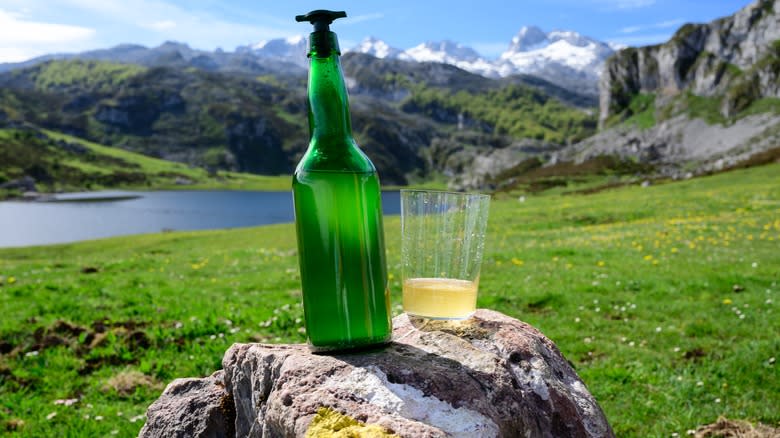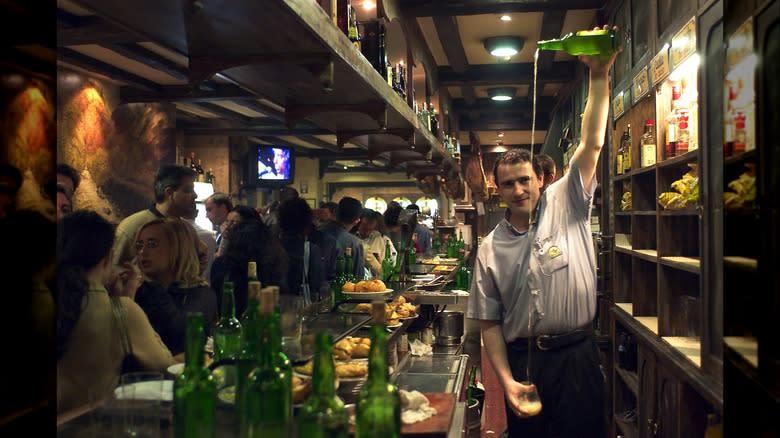In Spain's Asturias Region, Apple Cider Is Prized Over The Finest Wines

Cider is a defining part of Asturias, woven into the region's zeitgeist as both a prized show horse and a trusted old friend. 80% of all cider made in Spain comes from Asturias, and roughly 75% of Asturian-made cider is consumed by foodies within the region. It's a love story centuries in the making — Asturians have been enjoying cider since as early as 100 C.E. Today, it's traditionally served in green bottles and enjoyed year-round. In an episode of the "Parts Unknown" podcast, Asturias-native Chef José Andrés guides Anthony Bourdain through his hometown and shares a glass of cider with him. Bourdain asks, "So we're drinking cider?" to which Andrés succinctly replies, "That's what we should be drinking."
Asturian cider even has its own theatrical serving ritual called escanciar. The region produces natural cider, sparkling cider, and fermented cider, all typically "brut" meaning dry or unsweetened. To properly aerate the cider, it must be poured as far above the glass as possible, hitting the side of the glass from a height. This is called a culete — a small amount of cider meant to be consumed in one gulp. If there's any cider remaining in the bottom of the glass after the slug, it's customary to toss it out on the cider house floor, which is typically covered in sawdust for this very purpose.
Read more: The 20 Best Olive Oils For Cooking
Local Produce And Hometown Pride

Like true Parmigiano Reggiano, Asturian cider has a protected designation of origin, as Sidra de Asturias. Traditional Asturian cider is made from a blend of one or more of the 22 types of apples allowed under the P.D.O, although more than 30 apple varieties are grown commercially in the region. Traditionally, the cider is fermented in wooden barrels (especially chestnut) for several months, then decanted, and bottled without filtering, producing a fragrant, earthy sip with around 5%-6% ABV.
Asturias produces 45 million liters of apple cider every single year, primarily in the Comarca de la Sidra, or Cider District. Much of the region's cider is produced in Villaviciosa, which is said to be the birthplace of cider, along with Nava, Siero, and Gijón. However, cider is brewed all across the region at over 70 cider houses — known as sidrerías in Spanish, or chigres specifically in Asturias. These producers crank out an impressive 40 million bottles of the stuff annually, which are then exported to more than 50 countries around the world.
Homebrewing is a big deal in Asturias, too. For home brewers, cracking into a long-fermented batch for the espichas, or "first tastings," is a fun family event typically accompanied by snacks like ham, sausage, bread, and Cabrales cheese. Perhaps unsurprisingly, cider tourism has also taken off in the region; lots of cider presses serve visitors snacks like chorizo cooked in cider, cheeses, and Spanish tortillas.
Read the original article on Tasting Table.
